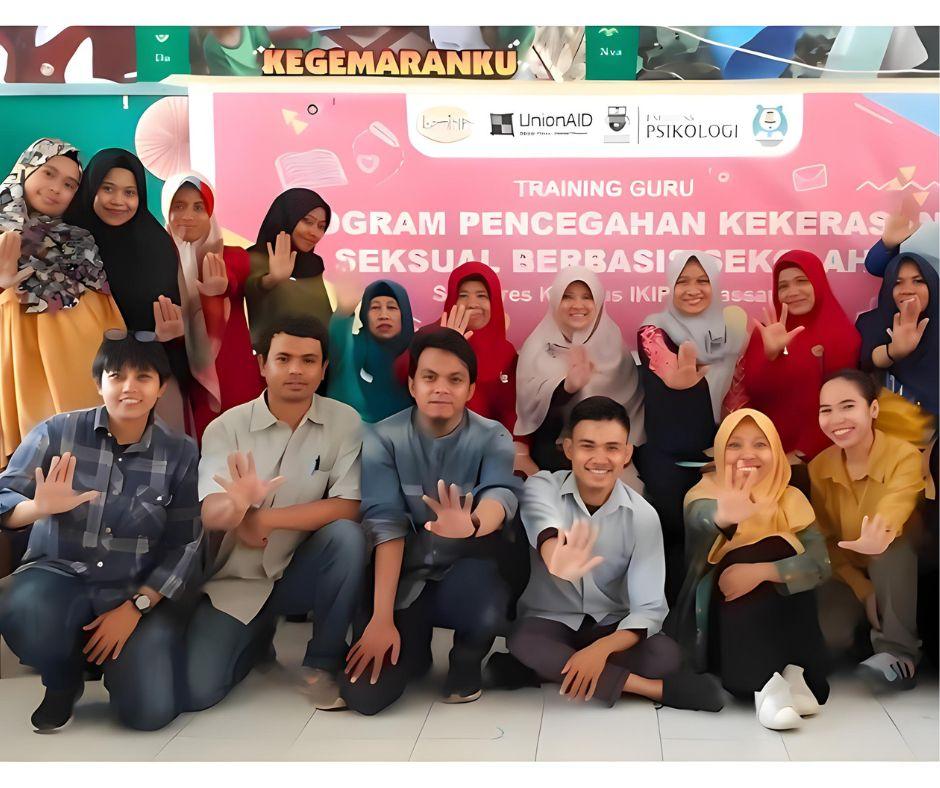
“Teachers are way more better at teaching than us because they have experience. What would we do is ‘stirring’ the water of knowledge and experience in their glass so they gain new perspective.”
The primary goal of the project is to develop and test a school-based program for the prevention of child sexual abuse in primary school.
Main Objectives:
- Developing teacher knowledge and capacity in teaching children protective behavior and knowledge of sexual abuse prevention.
- Develop school-based program that can be sustained and duplicated by other schools.
- Giving awareness to the teachers as potential perpetrators.
- Advocating the result of the project to government.
- Improving LemINA’s capacity to train teachers on children’s rights and sexual abuse prevention.
The School-Based Child Sexual Abuse Prevention Programme, implemented by Andi Arifayani of Yayasan LemINA, was conducted in SD Inpres Kampus IKIP Makassar, aiming to increase awareness and prevention of child sexual abuse through education. The project trained 15 teachers and reached 234 students, focusing on teaching children about protective behaviors, recognizing body autonomy, and understanding personal boundaries. The program was carried out in five phases: preparation, training, testing, evaluation, and public sharing. Modules were designed with expert input, and classroom implementation involved interactive learning and observation.
The results were promising. Teachers gained their first formal training on child sexual abuse prevention, and students demonstrated increased knowledge through post-training assessments. Children across grade levels showed greater understanding of body parts, private areas, and appropriate boundaries. The project also successfully engaged parents and local government stakeholders, although fewer parents attended the final sharing session than anticipated. The modules, which were well-received, are now being finalized for broader distribution, with the goal of replication in other schools across Makassar.
Beyond education, the program initiated a cultural shift by encouraging open dialogue about previously taboo subjects, like naming genitalia in a respectful, educational context. It also challenged traditional gender norms in parenting and teaching, although more effort is needed in that area. Importantly, the project helped strengthen LemINA’s organizational capacity to deliver future trainings and empowered its project leader with practical leadership, advocacy, and communication skills, laying the groundwork for long-term child protection initiatives in Indonesian schools.

